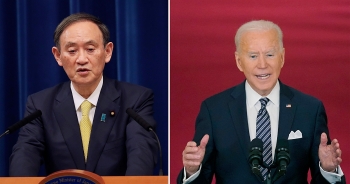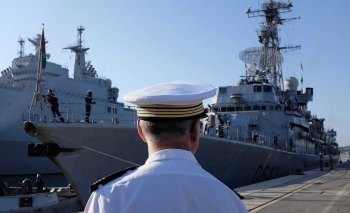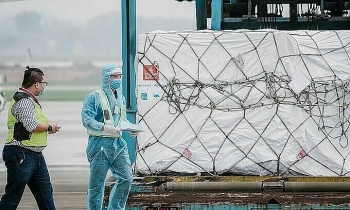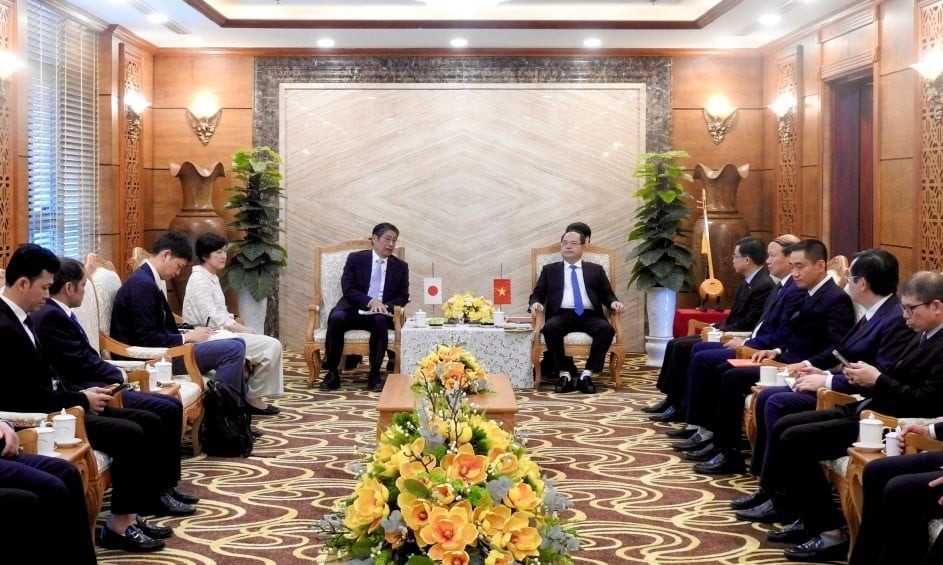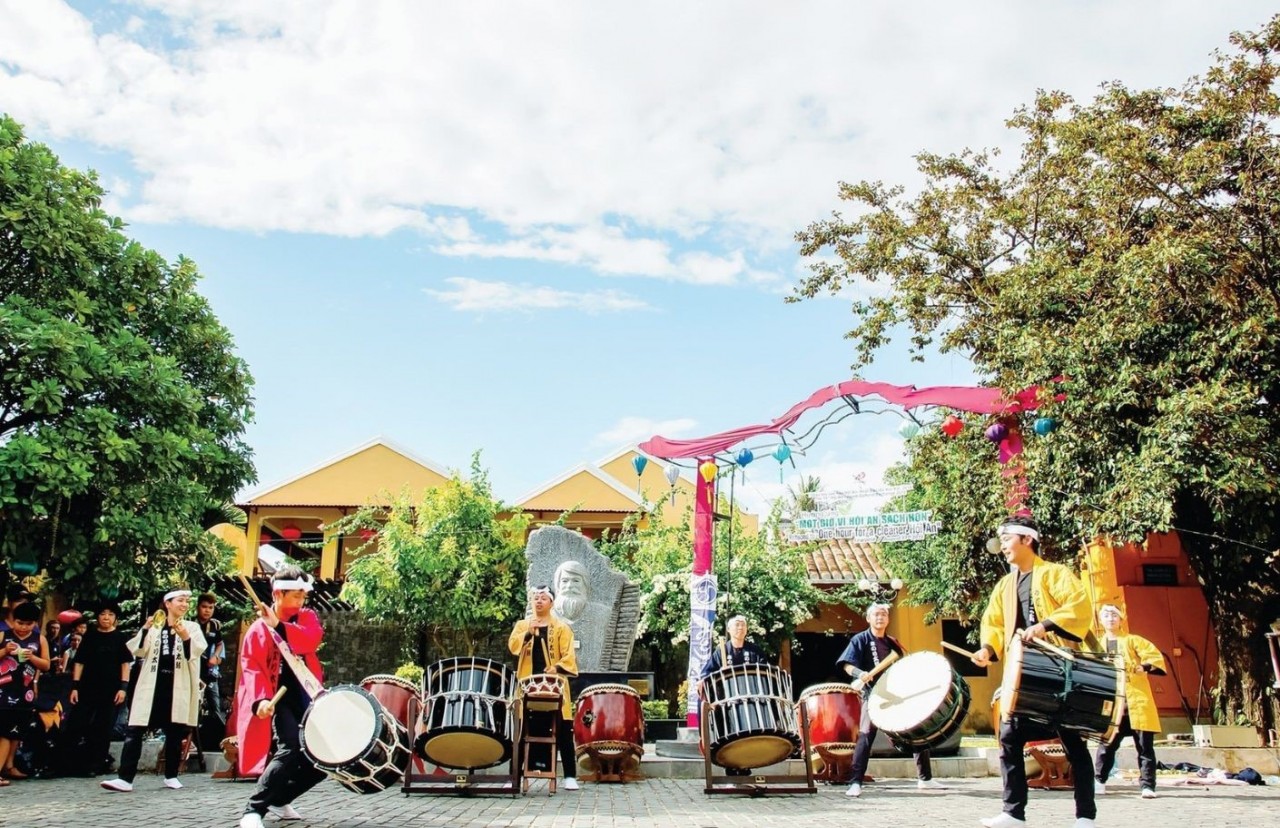US, Japan, South Korea generals hold first meeting in Hawaii since outbreak
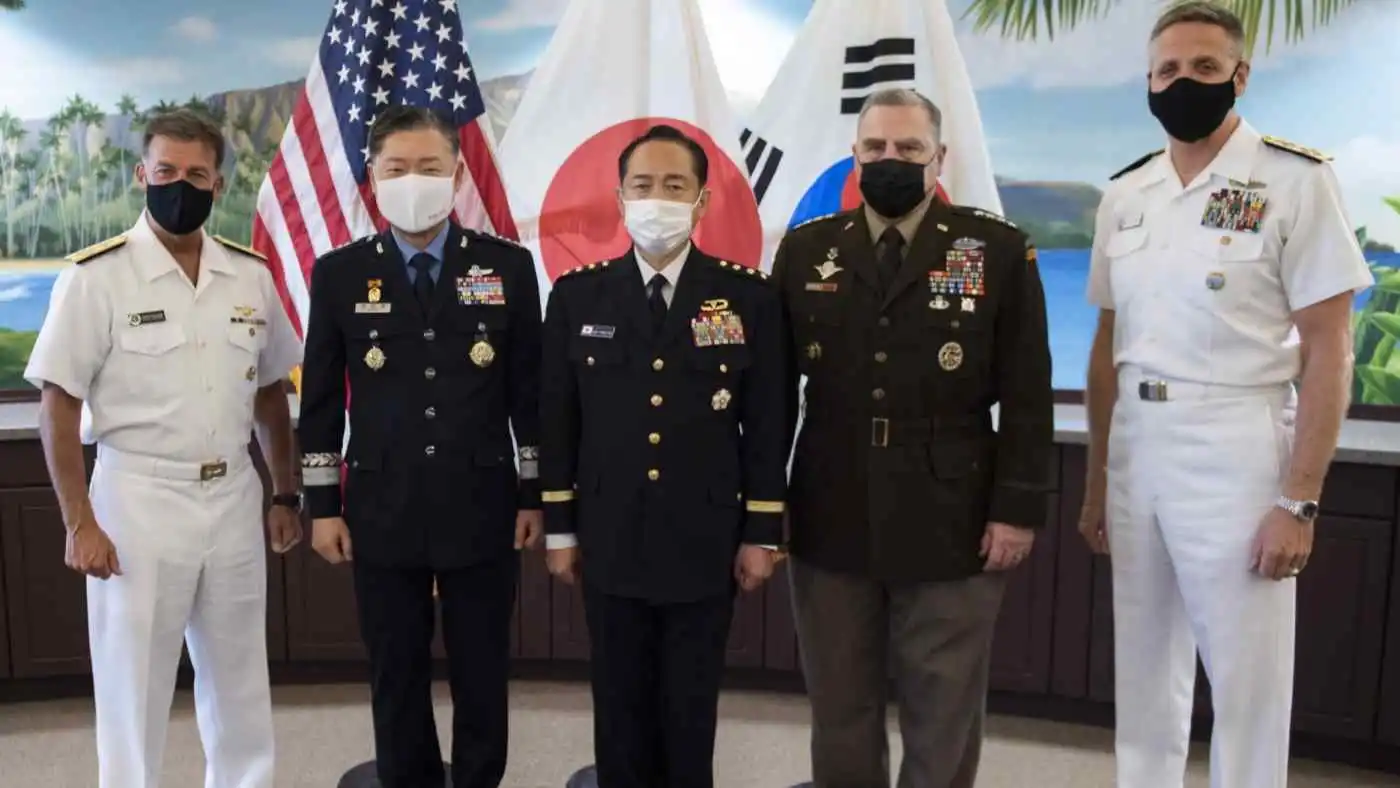 |
| The joint chiefs of staff of South Korea, Japan, and the US, center left to right, addressed North Korea in their meeting in Hawaii. (Photo courtesy of Japan's Ministry of Defense) |
Gen. Mark Milley, chairman of the US Joint Chiefs of Staff; Gen. Koji Yamazaki, chief of staff of the Japan Self-Defense Forces' Joint Staff; and Gen. Won In-choul, chairman of South Korea's Joint Chiefs of Staff, gathered in Hawaii last week to mark the first in-person meeting of the three countries' top brass since the global pandemic, Nikkei Asia reported.
"The three parties shared their concerns about North Korea's nuclear and ballistic missile programs and discussed the importance of promoting a rules-based international order in the region," the US side said in a news release.
Won emphasized the importance of cooperation among the trio to ensure peace and security on the Korean Peninsula and in Northeast Asia, while Yamazaki stressed the need to work together toward North Korea's full compliance with United Nations Security Council resolutions.
In a bilateral meeting the following day, Yamazaki and Milley reaffirmed that "the United States and Japan remain opposed to any unilateral attempts to change the status quo in the East China Sea," according to the American side's readout.
The exchange between the SDF and the American military came on the heels of Japanese Prime Minister Yoshihide Suga and US President Joe Biden confirming the "importance of peace and stability of the Taiwan Strait" in their April summit.
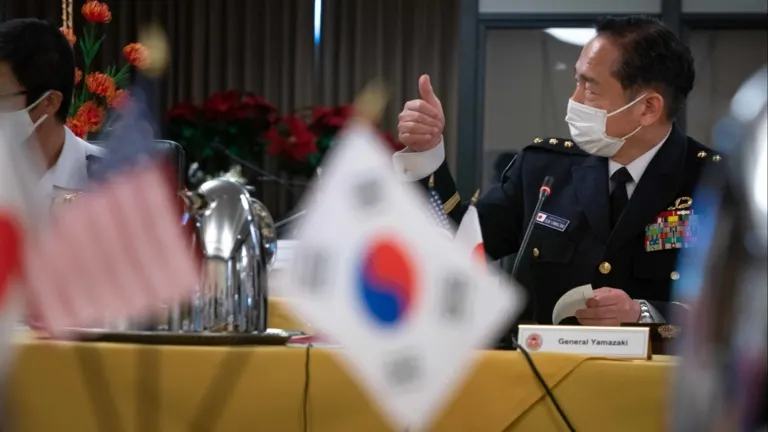 |
| Gen. Koji Yamazaki, chief of staff of the Japan Self-Defense Forces' Joint Staff, takes part in a three-way meeting with his American and South Korean counterparts in Hawaii. (Photo courtesy of the Office of the Chairman of the US Joint Chiefs of Staff) |
Tensions in the East China Sea have been rising, with China sending its Liaoning aircraft carrier between Japan's Okinawa and Miyakojima last month. China Coast Guard ships have repeatedly made incursions in the waters near the Japan-administered Senkaku Islands, which are claimed by China.
Yamazaki and Milley discussed "the United States' unwavering commitment to the defense of Japan" under Article 5, according to the readout, referring to the portion of the bilateral security treaty interpreted to mean that the US would treat any attack on Japanese territory as equivalent to an attack on American soil.
As China bolsters its military, Japan and the US are stepping up coordination in the region with European countries. The UK is deploying its HMS Queen Elizabeth carrier to Asian waters, including a port call in Japan. France will take part in defense drills with Japan and the US this month as well.
Yamazaki, who traveled to Hawaii to attend the changeover ceremony for the US Indo-Pacific Command, discussed conditions relating to Japan and the Indo-Pacific region with the new commander, Adm. John Aquilino.
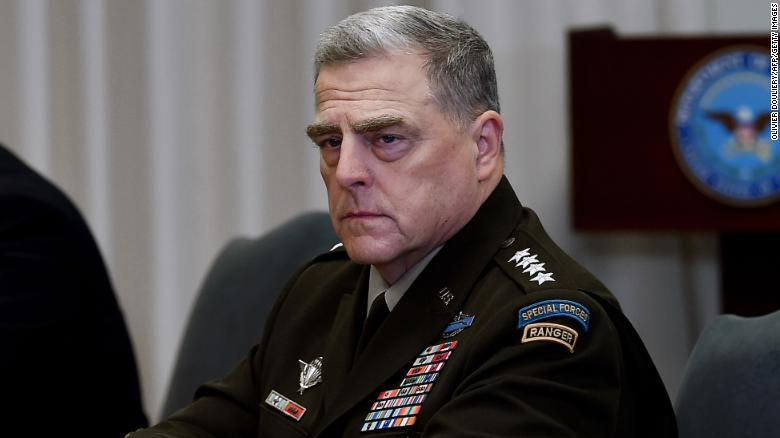 |
| Chairman of the Joint Chiefs of Staff, Army US Army Gen. Mark Milley. Photo: CNN |
CNN said the meeting between military leaders underscores the Biden administration's shift away from the wars of the last 20 years to the competition of the future. Defense Secretary Lloyd Austin's first international trip in mid-March was to meet with his South Korean and Japanese counterparts. Japanese Prime Minister Yoshihide Suga visited the White House two weeks ago, while South Korean President Moon Jae-in is scheduled to visit next month.
President Joe Biden, in his first address to a joint session of Congress, made confronting China and what he dubbed its "unfair trade practices" a top priority. In conversations with Chinese President Xi Jinping, Biden said he would protect American interests and vowed to keep a strong military presence in the Indo-Pacific region "not to start conflict, but to prevent conflict."
The meeting comes as the White House officially acknowledged the drawdown of troops in Afghanistan. At this point, fewer than 100 of the 2,500 US troops in Afghanistan have left the country, but the departing military equipment and service members signals the Biden administration's resolve to leave the country by September 11.
"After 20 years of American valor and sacrifice, it's time to bring our troops home," Biden said.
At the beginning of March, the Pentagon stood up a China Task Force to better understand how to address the challenge the world's most populous country poses to the US military. The task force, part of the Pentagon's Global Posture Review, is being led by Ely Ratner, Biden's pick to lead the Pentagon's Asia office./.
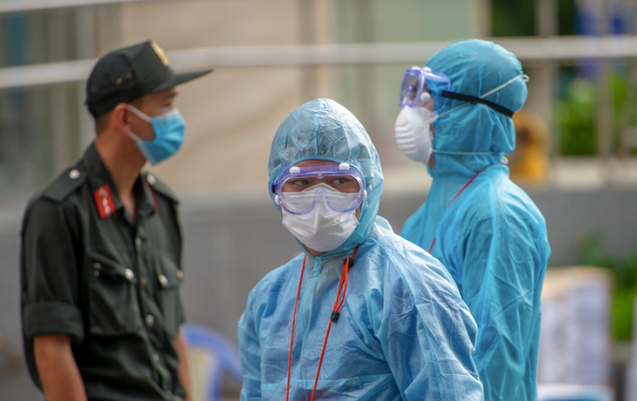 | Vietnam COVID-19 Updates (April 3): Vietnam taps EU, US, Japan for Covid-19 vaccine access Vietnam saw three new imported COVID-cases in the evening of April 2, according to the Ministry of Health. |
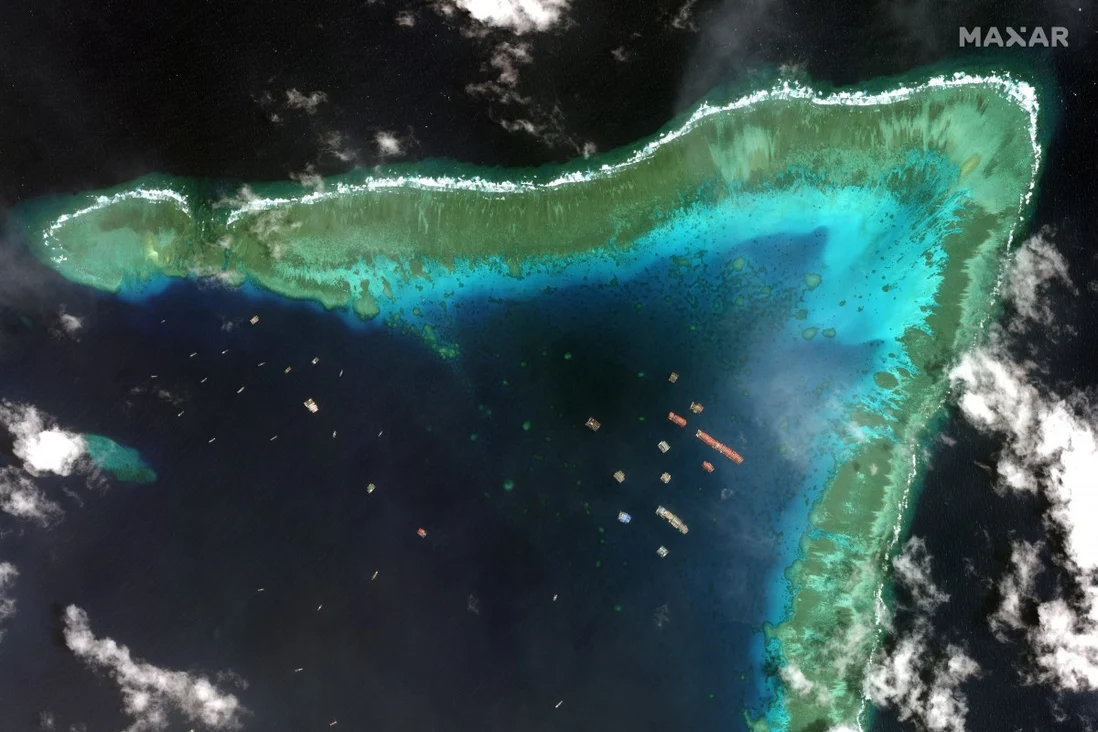 | US, Japan and Indonesia put more pressure on China over China-Philipines disputed reef More pressures raised on China by US, Japan and Indonesia over its activities on South China Sea, after the ongoing tensions with the Philipines over ... |
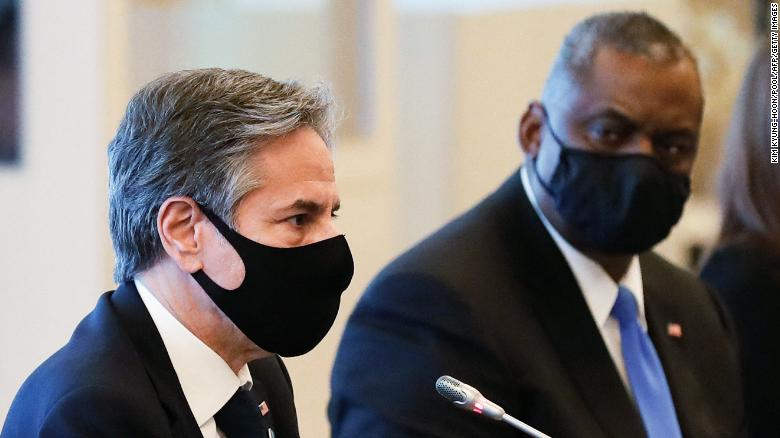 | US, Japan express serious concern over China's "coercion and destabilising behaviour" In the bilateral talks in Tokyo on Tuesday, US and Japan foreign and defence ministers have warned China they would push back if necessary against ... |
Recommended
 World
World
Pakistan NCRC report explores emerging child rights issues
 World
World
"India has right to defend herself against terror," says German Foreign Minister, endorses Op Sindoor
 World
World
‘We stand with India’: Japan, UAE back New Delhi over its global outreach against terror
 World
World
'Action Was Entirely Justifiable': Former US NSA John Bolton Backs India's Right After Pahalgam Attack
 World
World
US, China Conclude Trade Talks with Positive Outcome
 World
World
Nifty, Sensex jumped more than 2% in opening as India-Pakistan tensions ease
 World
World
Easing of US-China Tariffs: Markets React Positively, Experts Remain Cautious
 World
World

